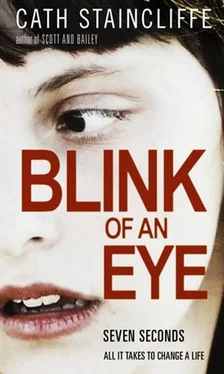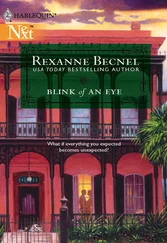Then one of the magistrates says something quickly which includes the words adjourned and Crown Court , and then I can go.
I thought the Vaseys might be there, but when I ask Don about it, he says, ‘No, they’ll almost definitely be at the trial and possibly the plea and case management hearing, but…’
I’m fixed on the word trial. It’s definite now. I am to be tried, put on trial, sent for trial. Tried and found wanting. Could be months, he’s saying, six months, maybe more.
Carmel
The magistrates’ court might have simply been a matter of procedure, but for us it felt like a plunge deeper into the abyss. This is actually happening , I kept thinking.
I’d been in court before, supporting clients, but now we were on the receiving end – the defendant and family. It made me feel grubby and resentful.
Naomi went to lie down when we got home; her energy levels were very depleted and I was worried about her emotionally. She seemed to be increasingly withdrawn, as though the only way she could function was to make herself as small, as absent as possible.
When she was a little girl, she loved to hide in small spaces, fold herself into a ball under the low table in the lounge, in the old ottoman where we kept soft toys, and whenever we got anything in a sizeable cardboard box she’d beg to keep it and clamber inside. Never a hint of claustrophobia. Hide and seek was one of her staple favourites for years. But those games had culminated in giggles and shrieks as she jumped out or was discovered.
Now I pictured her like a wounded animal, retreating from the world, growing quieter and smaller, the flesh shrinking on her bones until she became silent and desiccated.
I couldn’t get her to eat much. She was spending a lot of time alone and in bed and I suspected depression. I tried to get her to see the family doctor, but she wouldn’t even consider it.
‘I don’t want to; why should I?’
‘You’re struggling, Naomi, I think you’re depressed.’
‘I’m not depressed. What can the GP do anyway, stuff me with pills?’
‘If they help.’
‘No. I’m not going,’ she said.
‘Counselling, then?’
‘Just forget it.’
If only she’d accept some help. Anything. And the thought came unbidden: before she goes to prison . The traitorous, appalling prospect growing ever larger.
I heard her crying in the night. And she seemed to find it hard to summon interest in anything, even the fluffiest, least demanding magazine I brought home or the breeziest daytime TV shows.
I began to wonder if the trauma that had prompted Naomi’s amnesia had also affected some part of the brain that influenced personality. After all, I’d seen that with my mum. The old Naomi, the slightly ditzy, funny, spontaneous girl, was now lethargic, colourless. It could be the grey fog of depression smothering her energy, but what if she never came out of it?
There had been a reporter in court and the evening paper let the world and his wife know that Naomi Baxter (25) of Northenden, Manchester, had been charged with causing death by dangerous driving in the case of Lily Vasey.
We got phone calls. People who weren’t close but knew us well enough to have our phone number. Friends of friends, people who come for New Year’s parties and we don’t see from one year to the next or who I’d met through the massage course. They called up, to express their shock: was it really our Naomi, was there anything they could do?
I don’t know what was more difficult, the twittering interest of those individuals or the shattering silence of others. The Cynthia Stillers to whom we had become pariahs to be shunned.
For a few days I fended off any queries from Naomi about seeing Suzanne, saying she had a lot on, then that Jonty was back from Aberdeen and they had plans, then that Ollie wasn’t sleeping much. Not that Naomi mentioned her sister often.
It was during one of her visits to the hospital outpatient clinic, in the waiting area, that she interrupted me reading my book to say, ‘I texted Suzanne, she’s not replied. Is there something wrong with her phone?’
Oh Jesus. How to answer. There was no way to tell her without it cutting her to the quick. But I couldn’t lie to her; she didn’t deserve lies.
‘Suzanne’s upset,’ I said, ‘about the accident, about you driving.’
The expression on her face altered, the glower of guilt, plain as when she’d been a child caught doing something she shouldn’t.
‘She’s finding it hard to deal with.’
‘With me?’ Naomi said, her voice wavering.
‘Yes,’ I said. ‘I’m sorry.’
She bit her lip, her brow creasing. ‘So she’s dumped me, has she?’
I hesitated too long, framing the words, confirming her guess. When I began to try and explain, she just said, ‘It doesn’t matter, we were never that close anyway.’
Writing off twenty-five years of sisterhood, of shared mealtimes and holidays, of games and outings and celebrations and squabbles. Tears and kisses and secrets.
‘Is that really how you feel about it?’
‘Don’t bother with the whole social-work bit.’ She rolled her eyes.
‘I’m not being a social worker, I’m your mother,’ I said.
She left her chair then, ostensibly to get a cup of water but effectively ending the conversation.
I put my head in my hands, closed my eyes and tried to calm my pulse. When we got home I rang the GP. Maybe Naomi was refusing to try tablets for her troubles, but I needed something otherwise I was going to fly apart. I could feel the pressure growing inside, an explosion waiting to happen, the fuse burning, crackling, fizzing along. Saw myself, arms and legs and head shattered, flung, soaring away from each other. A crash-test dummy.
Naomi
Suzanne never forgets and she never forgives. She’s got a big black book in her head and everyone’s slightest misdemeanour is listed in precise detail, in permanent ink. I used to wish that once, just once, she’d mess up big time. Find out what it’s really like to make a mistake, to jump the wrong way, to fail. To feel small and shabby and miserable about yourself.
I’ve tried so hard to impress her. Slaving for my A levels and getting good grades, sticking at the degree even though it was really tough and I often wanted to give up. But the most I ever got from her was ‘Pretty good’, in this I can’t quite believe it voice, half expecting her to say that the grades were easier to get than when she sat them.
And then I couldn’t get a job and we were back living at Mum’s and I’d nothing to show her. Only Alex. Nothing to prove that I wasn’t a slacker and a loser.
And now this.
And she’s not the only one, not the most important one. How they must hate me. Lily’s parents, her brothers, all the rest of her family. Hate me without even knowing me, without any idea of what I look like, or what my personality is like or what I feel about what I have done.
I can’t even apologize to them, say how sorry I am, because if I did that then it would be like admitting I’m guilty, and everyone agrees that I have to plead not guilty.
Sometimes I feel like giving up and owning up, saying, ‘Yes! I did it, I suddenly remember! It’s all come flooding back. I was careless and I was drunk and I just never saw her, didn’t realize we were so close when the bumper or the wheel or whatever hit her.’ But I can’t even do that because I’d be perjuring myself, you see. Because I can’t fucking remember, so how the hell can I stand up in court and say ‘x and y and z happened and I’m terribly, terribly sorry, punish me now’?
I don’t think the guilt will ever go away. Even if they convict me and send me to prison. The awful leaden feeling inside, like an iron fist, cold and hard and unforgiving. Nothing can bring Lily back. There’s no magic formula that can bleach away the stain of what I’ve done. It’s only right that someone pays. If it was Ollie that had been hurt I’d want someone to pay for it. I wish there was something I could do to show them how sorry I am, how truly, truly sorry.
Читать дальше












